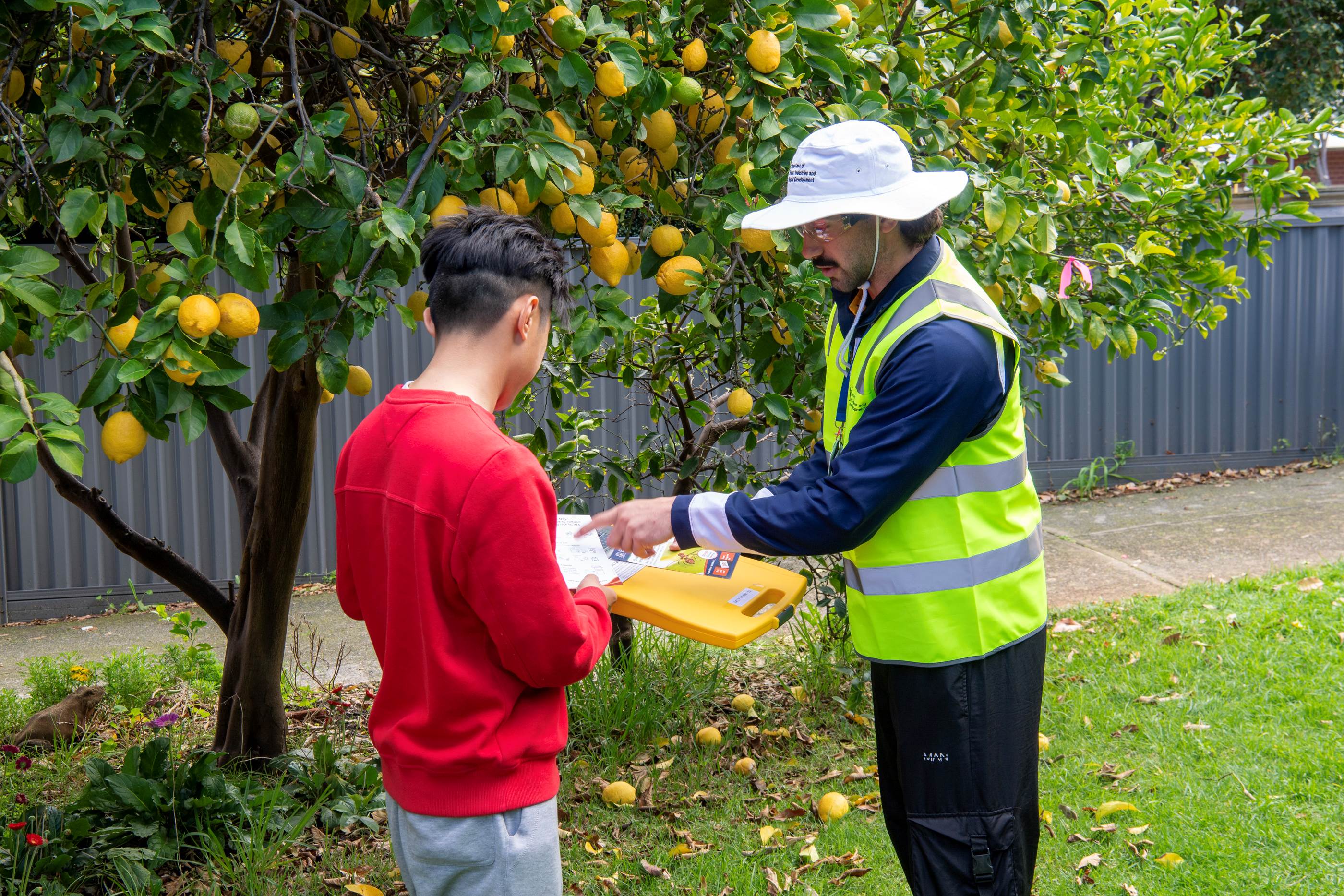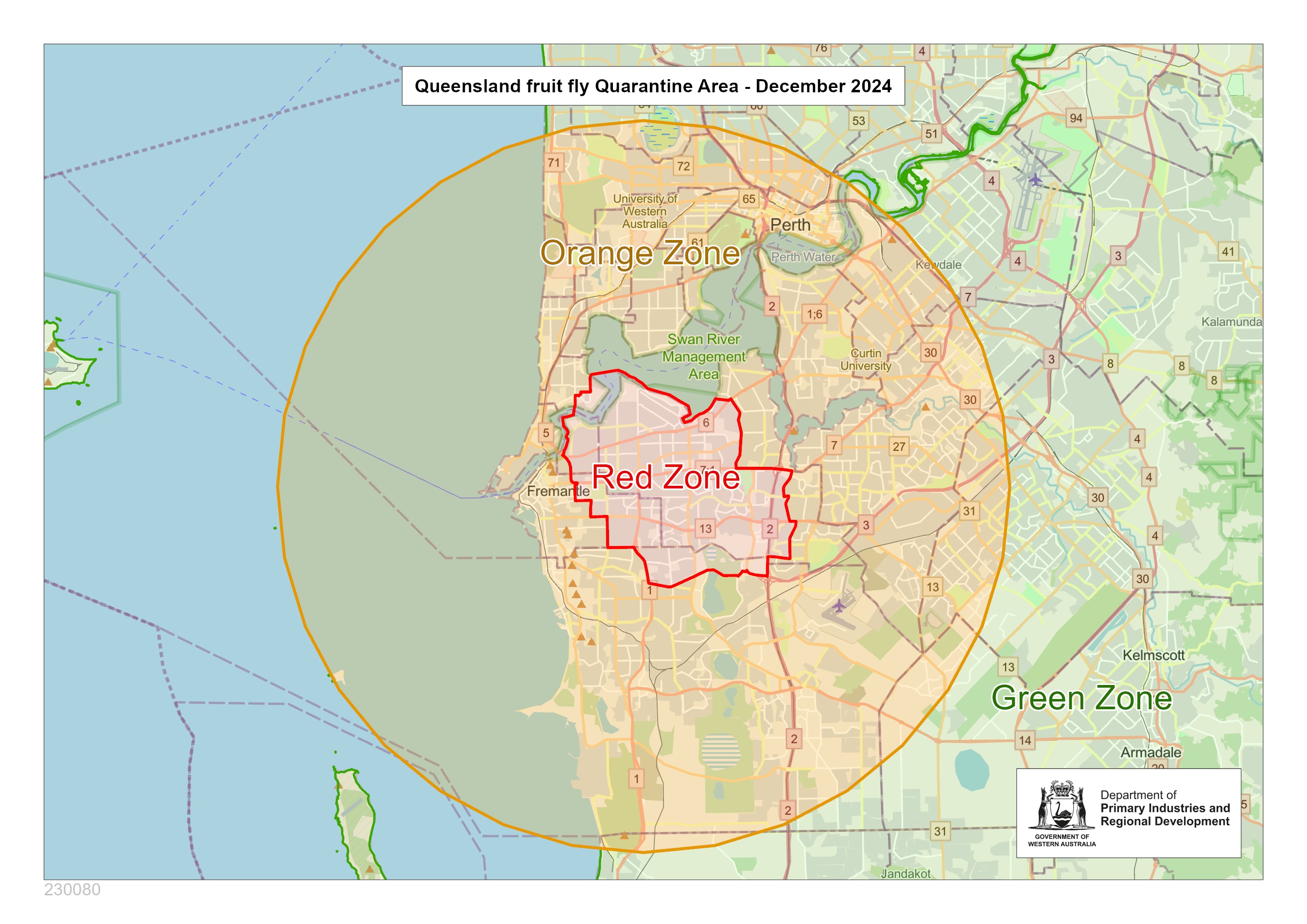
The move comes after the damaging pest was detected in Willagee and Palmyra by the Department of Primary Industries and Regional Development’s (DPIRD’s) early detection surveillance trapping grid.
Qfly is a significant pest of horticulture and home gardens that infests more than 300 types of fruit, including fruiting vegetables like chillies, capsicums and tomatoes.
The Quarantine Area includes two zones – a corrective action zone around where the pest was first found (Red Zone) and a buffer zone of surrounding suburbs within a 15 kilometre radius of the initial detections (Orange Zone).
An online interactive map can assist residents and businesses to identify what zone may apply to them and what rules apply.
Residents and businesses in the Red Zone must remove all fruit and fruiting vegetables – regardless of maturity – from Qfly host plants, as well as fallen fruit.
Homegrown fruit and fruiting vegetables inside the Red Zone can be consumed, however only treated fruit can be moved within or outside the zone.
Treatment options include cooking, processing, freezing or solarising by securing fruit in a black plastic bag and placing on a hard surface in direct sunlight for more than seven days.
Fruit not consumed or treated must be disposed of by securing in a black plastic bag and disposing in the general waste bin – but not into the recycling or food organics, garden organics (FOGO) bin.
Residents and commercial operators in the Red and Orange zones wishing to move fruit and host plants within or outside of the zones are urged to consult the Queensland fruit fly updates webpage for movement requirements.
Both homegrown and commercial fruit coming into or passing through the Quarantine Area must be securely covered to ensure the produce does not become infested.
DPIRD is liaising with industry and supply chain operators, including Market City, to make them aware of the movement requirements.
DPIRD Chief Plant Biosecurity Officer Vincent Lanoiselet said the department appreciated the community’s and industry’s support for the movement requirements, which would play a critical role in eradicating the pest as quickly as possible.
“These important measures will help to break the life cycle of the pest and stop its spread to other host plants in gardens, parks and farmers’ crops,” Dr Lanoiselet said.
“Working together – industry, government and community – and complying with the Quarantine Area directions gives us the best chance of eradicating this pest, which could impact growers’ livelihoods and access to valuable markets.”
The department has vast expertise and experience in responding to Qfly detections in the metropolitan area, having eradicated the pest nine times in the past 40 years.
DPIRD officers are undertaking inspections and baiting with a registered organic control on street trees and trees on residential and commercial properties.
Trees will not need to be removed as part of DPIRD’s Qfly biosecurity response, as effective treatments are available to control the pest.
For a map, a list of host plants, further information on movement, treatment and disposal requirements and response updates visit the Queensland fruit fly updates webpage.
Reports of suspected Qfly are encouraged, including maggots in fruit, via the MyPestGuide Reporter app or DPIRD’s Pest and Disease Information Service on 9368 3080, email padis@dpird.wa.gov.au.
To search the interactive map to see what zone your property is in, visit the Queensland fruit fly updates webpage.



